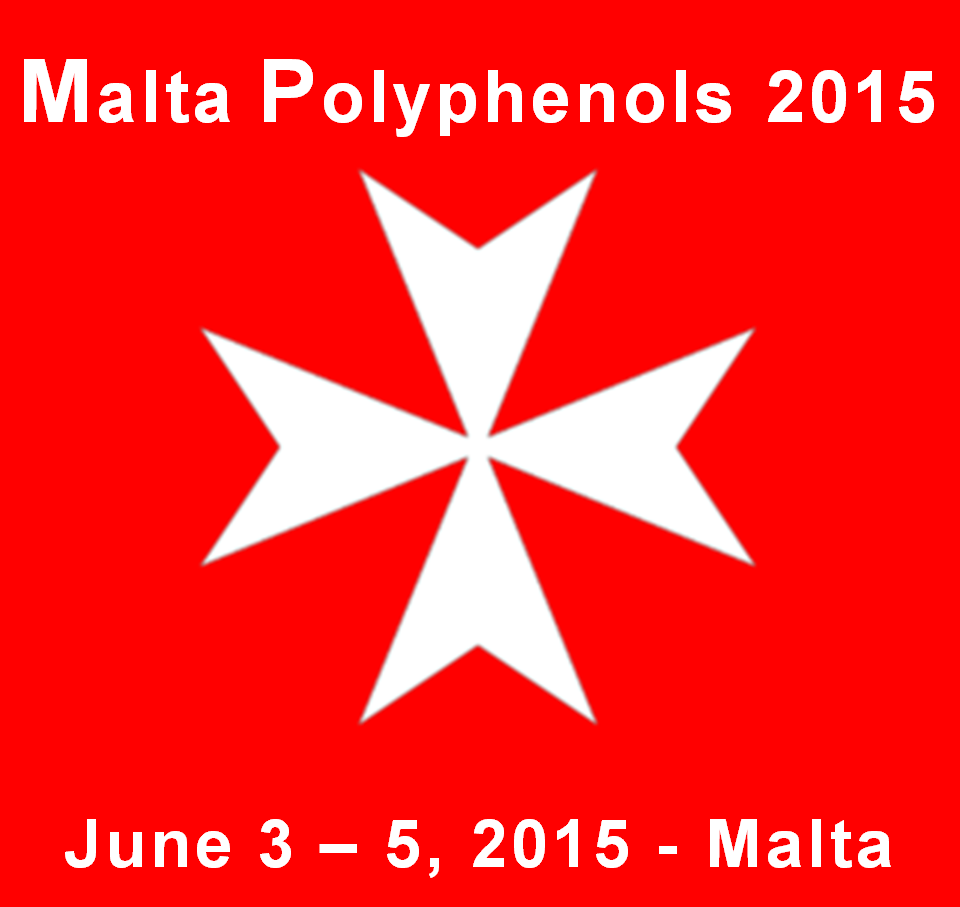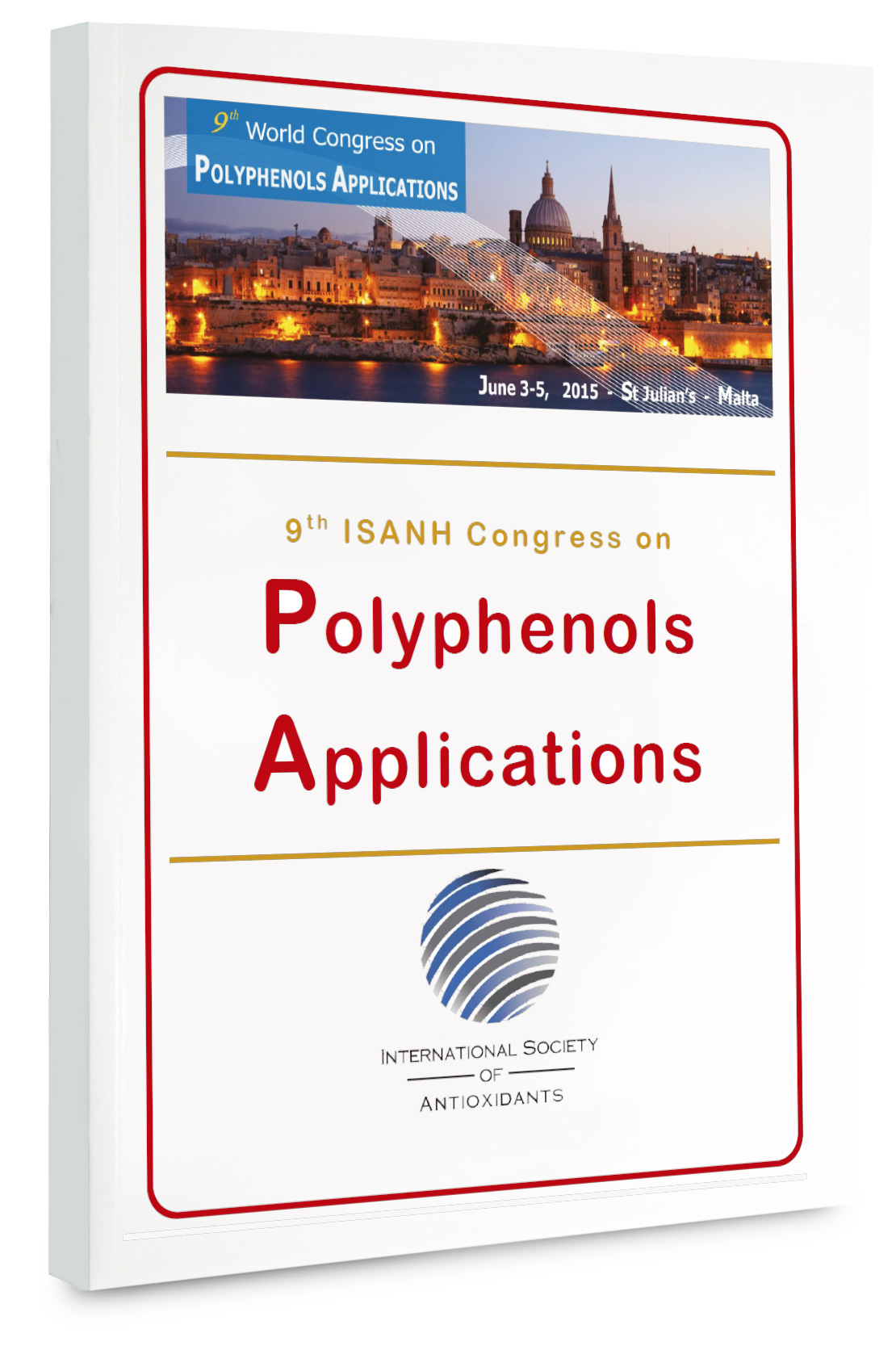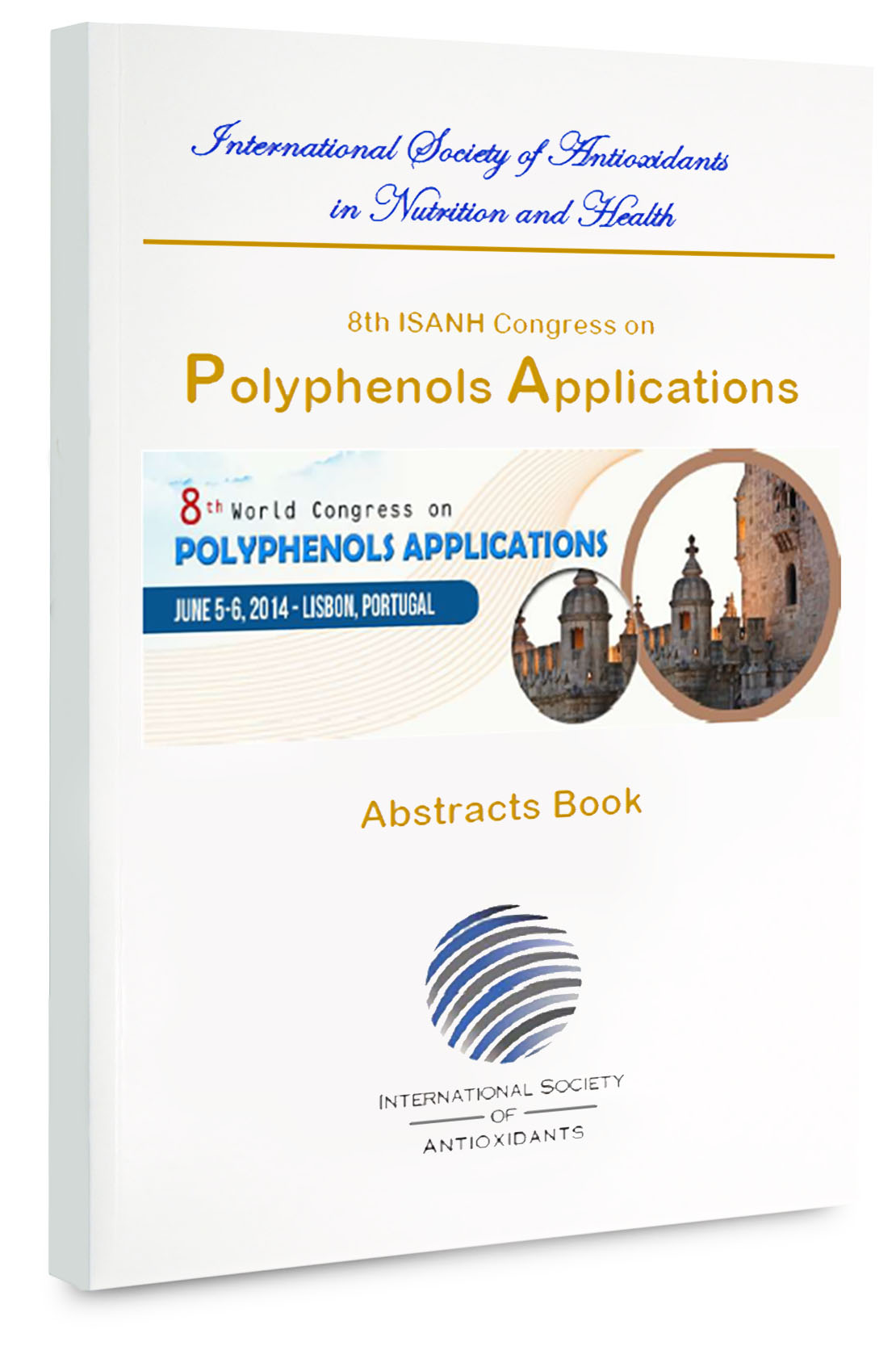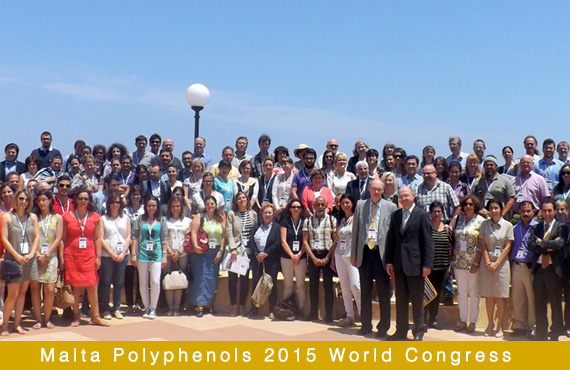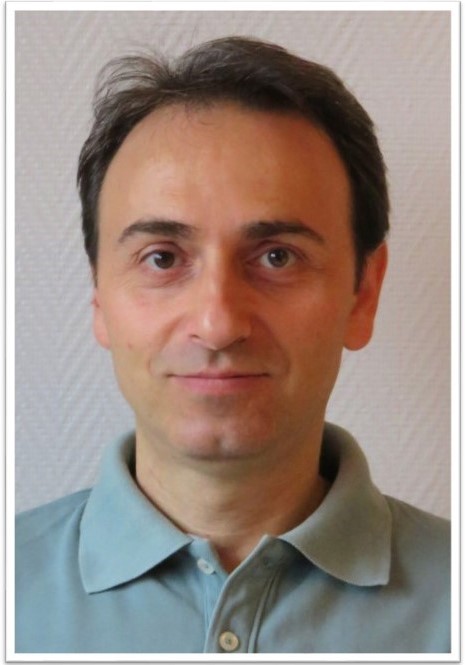News
During the Symposium on Natural Pigments & Colorants, Pr Durner will give a talk on Formation of anthocyanin-derived in red wine and their contribution to colour, mouth-feel, and astringency perception.
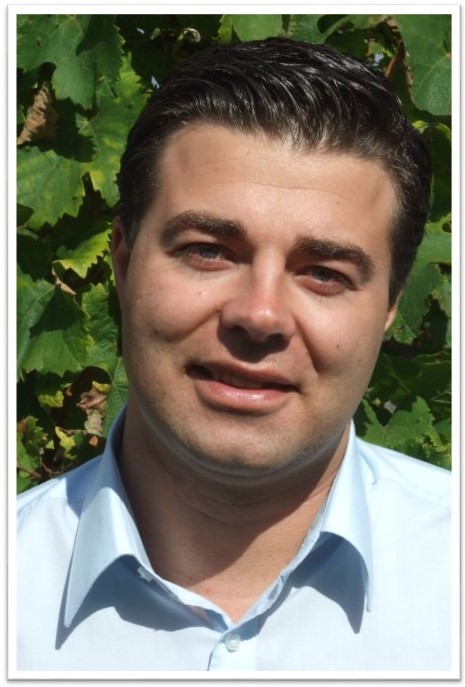
Pr Durner will present anthocyanin pigments formation and role in colour, mouth-feel and astringency of red wine, during the symposium on food & beverages applications at Malta Polyphenols World Congress 2015.
“Key quality parameters of red wines are colour, mouth-feel, and astringency perception. All three are, more or less, driven by polyphenolic compounds originating from grape tissues or wooden barrels. Due to their high reactivity, most of the polyphenolic molecules, including flavanols, anthocyanins, and ellagitannins, undergo reactions with other phenolic moieties or wine constituents during vinification process and red wine aging. Resulting polymeric pigments and anthocyanin derivatives are crucial for the colour stability of red wines. Polymeric pigments in red wines reveal higher colour stability with an increasing molecular weight. Acetaldehyde-linked flavanol-anthocyanin adducts tend to exhibit purple colour with an increasing number of interflavanoid bridges. Besides molecule size, colouring properties are also determined by the number of anthocyanins incorporated in polymeric pigments. A high degree of anthocyanins moieties in tannic structures guarantees high intensity in red colour. Recent studies address anthocyanin molecules incorporated in polymeric pigments being also responsible for a balanced mouth-feel and less unripe astringency perception. From the perspective of a winemaker, the targeted production of these, positively associated, pigments is essential to produce red wines of high quality. The talk will include enological practises to improve and stabilise red wine colour such as barrel aging, micro-oxygenation, and the use enological tannins and oak chips.”
To know more about Malta Polyphenols World Congress 2015, please click here.
Dr Vassallo will present a talk on the use of polyphenolic compounds as novel protective agents in neurodegenerative diseases, during the Malta Polyphenols World Congress 2015
 During Malta Polypenols World Congress 2015, happening between June 3-5 at St Julian's, Dr. Vassallo will give a talk on the use of polyphenolic compounds as a novel strategy for protecting neuronal cells from lipid membrane damage.
During Malta Polypenols World Congress 2015, happening between June 3-5 at St Julian's, Dr. Vassallo will give a talk on the use of polyphenolic compounds as a novel strategy for protecting neuronal cells from lipid membrane damage.
"Neurodegenerative disorders, including Alzheimer’s and Parkinson’s disease, are defined by the aberrant misfolding of amyloidogenic proteins (e.g. amyloid-beta, alpha-synuclein, tau) into higher-order toxic aggregates that accumulate in the brain. These toxic aggregates have an intrinsic ability to interact with, and
destabilise, biological membranes leading to neuronal cell death."
Dr Vassallo will discuss the use of plant-derived polyphonic compounds aimed specifically at inhibiting amyloid-membrane interactions and preservating the membrane barrier, thus providong a novel therapeutic strategy for preventing or treating suc disorders.
To know more about the Malta Polyphenols World Congress 2015 that will be held on June 3-5 in Malta and the preliminary agenda, please visit www.polyphenols-site.com.
Professor Elke Richling will speak about Bioaccessability and bioavailability of chlorogenic acids during Malta Polyphenols World Congress
 Pr. Elke Richling, professor in Kaiserslautern university in Germany, will talk about bioaccessability and bioavailability of chlorogenic acids from coffee with special emphasis on breakfast consumption during Malta Polyphenols World Congress on June 3-5, 2015, in St Julian's, Malta.
Pr. Elke Richling, professor in Kaiserslautern university in Germany, will talk about bioaccessability and bioavailability of chlorogenic acids from coffee with special emphasis on breakfast consumption during Malta Polyphenols World Congress on June 3-5, 2015, in St Julian's, Malta.
How Resveratrol could have beneficial effects in Inflammation Diseases? will be presented by Dr Pautz at the Malta Polyphenols World Congress 2015 on June 3-5
 Dr. Pautz of the Institute of Pharmacology, Gutenberg University will describe a new anti-inflammatory mechanism of Resveratrol at the Malta Polyphenols World Congress held from 3-5 June.
Dr. Pautz of the Institute of Pharmacology, Gutenberg University will describe a new anti-inflammatory mechanism of Resveratrol at the Malta Polyphenols World Congress held from 3-5 June.
Utilization of By-products of Food Processing: Malta Polyphenols Pre-Conference Workshop
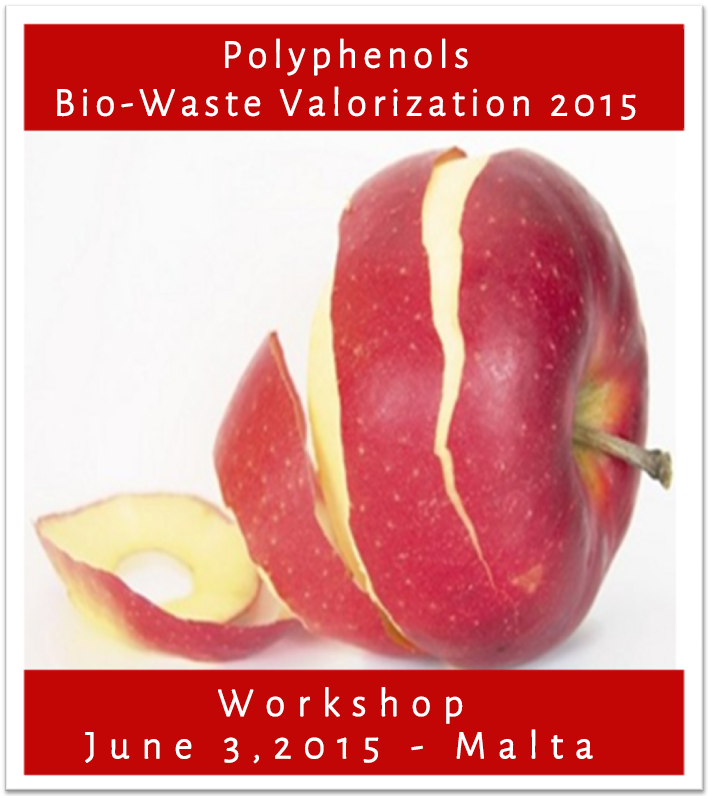 Fruit and vegetable by-products are today considered as a cheap source of valuable components, as since the existent technologies allow the recovery of target compounds and their recycling inside food chain as functional additives in different products.
Fruit and vegetable by-products are today considered as a cheap source of valuable components, as since the existent technologies allow the recovery of target compounds and their recycling inside food chain as functional additives in different products.
Polyphenols, phenolics acids, antioxidants found in huge amount in bio-waste and by-products, can be used in health and food industries.
More Articles...
- The Abstracts Book of Lisbon Polyphenols 2014 is now available
- ISANH discerned the ISANH Polyphenols Award 2014 to Milne Fruits
- Pr Elke Richling was awarded by Lisbon Polyphenols 2014 Scientific Committee for her Scientific Contribution
- Dr Claus Schneider received a Scientific Award for his Short Oral Presentation on Biochemical Pharmacology of Curcumin



